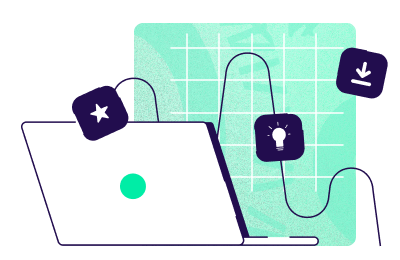
Privacy Cloud Application (PCA)
A Privacy Cloud Application (PCA) enables brands and their partners to share and analyze data using a secure platform. The purpose of a PCA is to support ecosystem collaboration despite limited access to user-level data, and enhance end-users experience while preserving their privacy in full.
What is a Privacy Cloud Application?
Each collaboration between a brand and its partners using a Data Clean Room is called a PCA.
A PCA allows companies to collaborate by safely bringing their data together — in order to slice and dice their campaigns’ data and gain critical decision-making insights, all without sharing individual user-level data with each other.
Platforms, ad-networks, tech partners, and app developers are able to define their own PCA, their own business logic, compliance, and data governance — and then apply it to their Data Clean Room of choice.
How does it work?
Each PCA can be configured by both parties using the following:
- Data control – predefining what kind of data flows into the Privacy Cloud environment, and what kind of data leaves it.
- Business logic – defining how the data is enriched with other datasets within the Privacy Cloud, and what types of measurement and analytics are performed on top of this mutual dataset.
- Compliance and data governance – setting privacy thresholds and aggregation levels.
The business logic running on the mutual dataset within the Privacy Cloud is the secret sauce that generates the privacy-preserving Insights for the involved parties.
Marketers can then leverage a wide range of measurement technologies within the Data Clean Room environment — in order to maximize the impact of their generated insights. These should include:
- Attribution – running SKAdNetwork, probabilistic models, aggregated conversion modeling, and real time attribution — simultaneously
- Fraud protection – cleaning datasets from fraud
- Aggregated advanced privacy
- Cost and revenue reporting
- Predictive analytics
- Incrementality lift measurement
- Audience segmentation
What are the benefits of using a Privacy Cloud Application?
The key objective of a PCA is simple, really — and that is to maintain the level of customer experience that’s currently enabled by the use of various identifiers, without risking consumer privacy.
Here are the top three advantages of deploying a PCA:
- Ending marketers’ reliance on user-level data – although ecosystem collaboration is key to growing your business, relying on user-level data in the era of privacy is plain risky for all parties involved.
A PCA, on the other hand, allows marketers to bring their data together with their partners for joint analysis in a privacy-preserving way, gain critical insights, measure, and optimize — without having to access personal identifiers.
- Tailoring every collaboration to fit marketers’ needs – Every collaboration is unique, with different levels of trust and distinct business objectives. PCA are designed to be fully configurable in order to enable precise data controls and flexibility.
- Giving your customers exceptional (and private) experiences – privacy and customer experience don’t need to be an either or choice.
PCAs allow marketers to create exceptional customer experiences based on various data sources, enhanced modeling, and advanced analytics — without compromising consumer privacy.
Key takeaways
- A Privacy Cloud Application (PCA) allows companies to collaborate by safely bringing their data together — in order to slice and dice their campaigns’ data and gain critical decision-making insights, all without sharing individual user-level data with each other.
- Platforms, ad networks, tech partners, and app developers are able to define their own PCA, their own business logic, compliance, and data governance — and then apply it to their Data Clean Room of choice.
- A Data Clean Room, which can support a number of PCA collaborations, also allows marketers to leverage other privacy-preserving technologies, such as aggregated advanced privacy, Predictive analytics, Incrementality lift measurement, Audiences, and aggregated conversion modeling.



